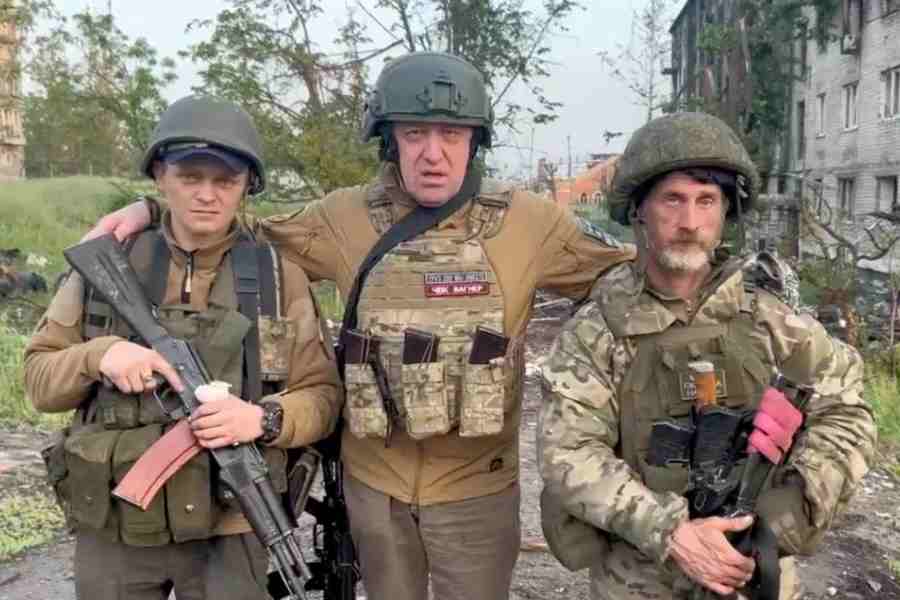A mysterious rippling in Moscow left the strategic community guessing recently. The trusted weapon in the Russian arsenal, the Wagner Group (picture), whose chief died recently, had turned the tables on the Russian president, Vladimir Putin. Although the crisis de-escalated quickly, the incident raised serious questions over the utility of private military companies. Can a PMC become a threat instead of providing strategic support to a nation’s army during a war? An examination of the complexities undergirding PMCs and their functioning during a crisis merits scrutiny.
The deep State has wider implications for military complexes. In the context of the deep State, the term, military complex, refers to military structures and players who are not part of the conventional military edifice or State structure. Non-State actors such as PMCs are being used to serve broad military-political objectives. They help nation-states infiltrate an adversary’s internal affairs, influencing their foreign policy as well as its military and political decision-making. Deep State actors have undertaken these tasks either for profit or for political purposes that a State cannot execute openly. ‘Political purposes’ usually involve conducting assassinations or coups, while profiteering activities pertain to the facilitation of arms deals.
Globalisation has widened the scope of PMCs. Since the 1990s, PMCs started to gain prominence within the strategic and security paradigm. The United States of America began to nurture private military contractors and other units under the aegis of the Central Investigation Agency. With the emergence of such non-State actors and the evolution of newer security challenges in international politics, global superpowers began to use PMCs to help them ease off the burden of defence expenditures. The deployment of PMCs on the battlefield also limits the use of conventional armies. PMCs also act as a force-multiplier during conflict. They have robust, but unauthorised, networks of arms, recruitment and finances that are often informally backed by the State. Parallelly, they are used to enhance the strength of the war-machine and its operations. Even, in a post-war environment, PMCs are used to set up arms’ supply networks in restive regions, train local personnel, strengthen domestic security infrastructure and organise logistical support.
In the case of the Ukraine war, it was becoming difficult for Moscow to maintain its war-effectiveness in a complex battlefield. Therefore, the Russians resorted to the deployment of such unconventional means as PMCs. The role of the Wagner Group in Ukraine reveals Russia’s inclination to use PMCs to achieve military and political objectives. The operational design includes plans to politically destabilise Ukraine by assassinating the Ukrainian president, Volodymyr Zelensky. Assisting Russian forces through logistical and combat support comes under its military responsibilities. It can also be argued that Russia is using the Wagner Group to expedite the end of the war while deterring the efforts by Ukraine’s Western allies to lengthen the conflict by supporting the Ukrainian forces and by continuing to inflict damage on Russia on the economic front.
Whatever the outcome of the conflict in Ukraine, there is a case for closely analysing the effectiveness of PMCs in realising Russia’s strategic goals in Ukraine once the guns have fallen silent.










